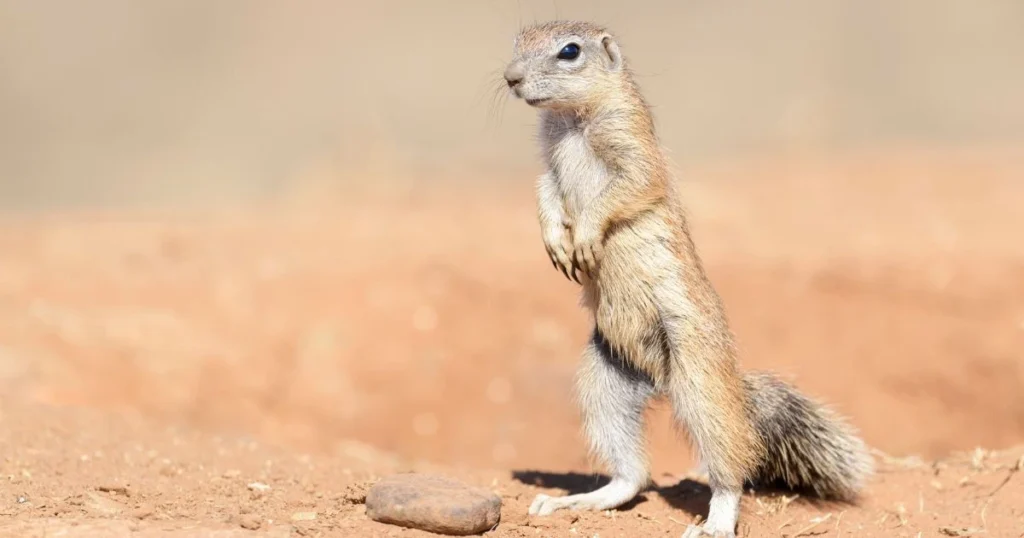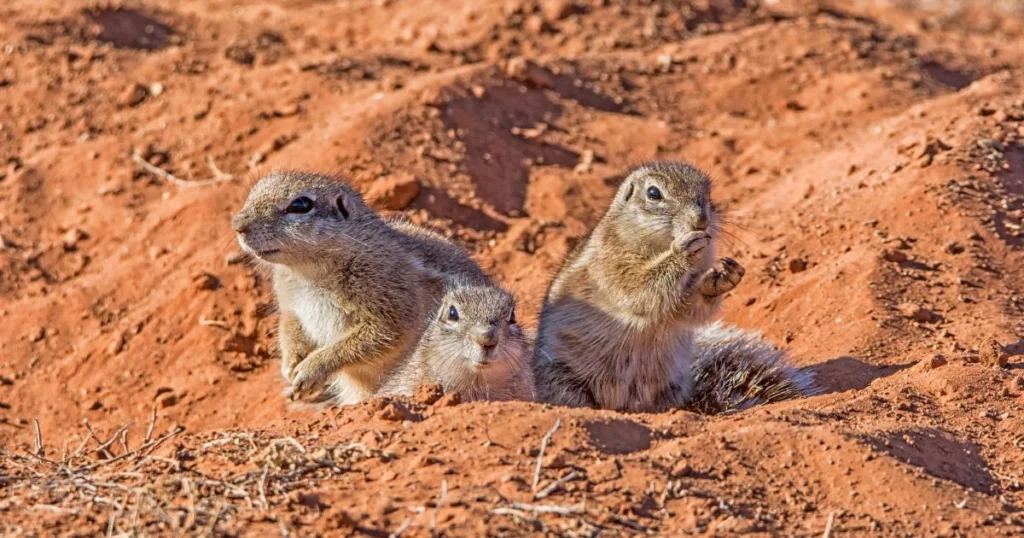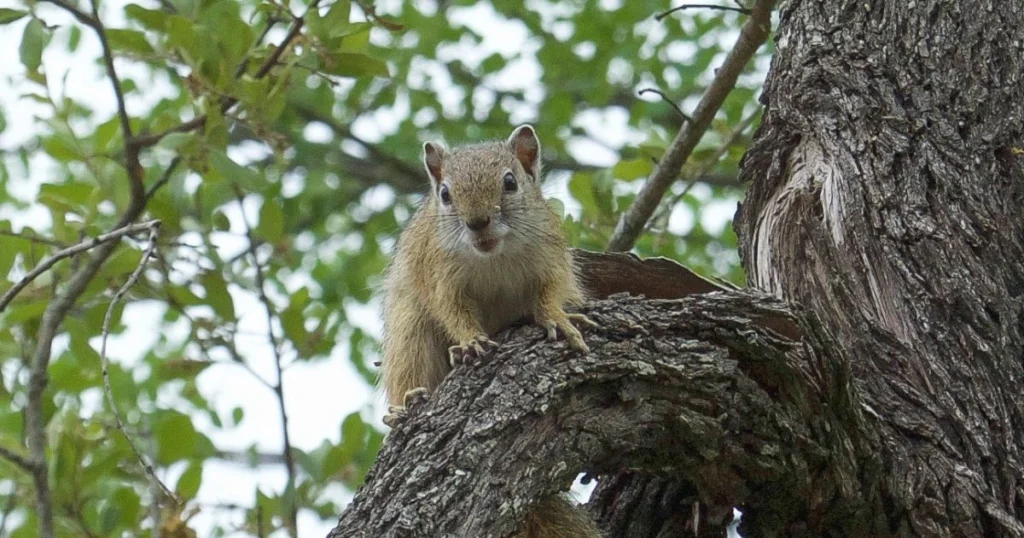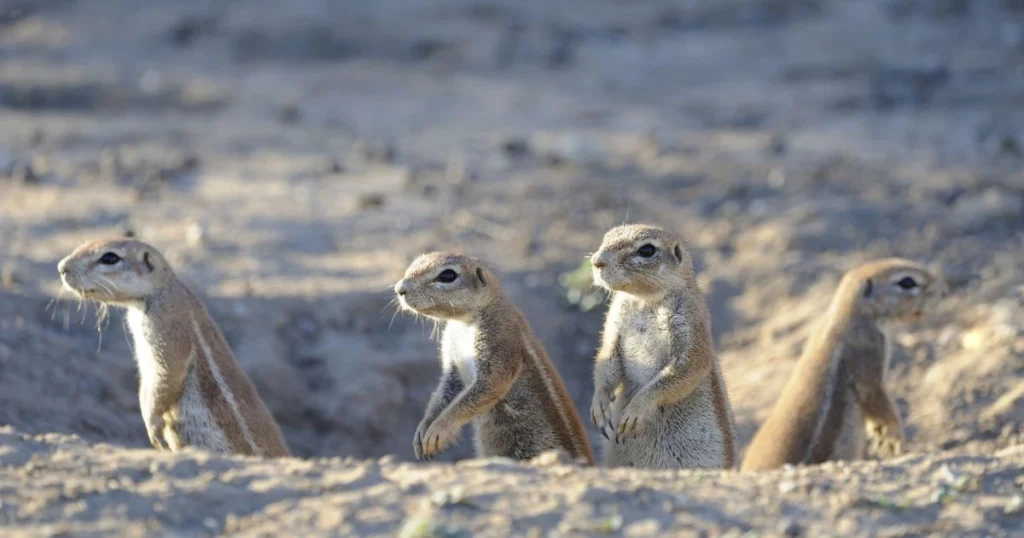
Ground squirrels often scurry across open fields and meadows, but their climbing abilities may surprise some. While ground squirrels primarily inhabit burrows and are not known for climbing trees as their primary behavior, some species may occasionally climb low shrubs or trees in search of food or to escape predators. This behavior is not typical and reflects a more opportunistic nature than a strong proficiency for climbing.
Observers frequently note that ground squirrels prefer staying close to the ground, using their burrows for safety and shelter. Their physical adaptations, such as strong forelimbs and sharp claws, allow them to navigate their terrestrial environment effectively. Despite their limited climbing, these small mammals exhibit fascinating behaviors that can captivate wildlife enthusiasts.
Exploring the instances when ground squirrels climb trees can provide insight into their adaptive strategies for survival. This article will examine the circumstances that drive these animals to leave their burrows and venture upwards, illustrating the broader lifestyle of these intriguing creatures.

Ground squirrels display distinct behaviors that differentiate them from their tree-dwelling relatives. Their adaptations to terrestrial habitats influence their foraging strategies, social structures, and nesting practices.
Ground squirrels are primarily terrestrial but are known to climb low branches or shrubbery. Unlike tree squirrels, which are skilled climbers and often live in trees, ground squirrels typically seek shelter in burrows. Their climbing behavior usually serves as a means to escape predators or to access food sources like fruits and nuts from low-hanging branches.
While ground squirrels may occasionally climb, their adaptations—such as strong forelimbs for digging—are more suited to life on the ground. This lack of arboreal adaptability is a key distinguishing factor between ground squirrels and tree squirrels, which rely on their ability to navigate elevated terrains for nesting and foraging.
Ground squirrels are known for their extensive burrowing habits, creating complex tunnel systems. These burrows serve several functions, including protection from predators, food storage, and a place to raise young. The sophistication of these burrows can vary among species, with some creating simple tunnels and others developing elaborate networks that can extend several feet underground.
Their digging behavior is also important for accessing food, such as roots and underground plant parts. By remaining close to the ground, they maximize their efficiency in foraging and protect themselves from aerial threats. This adaptation reinforces their role in the ecosystem as both prey and foragers.

Ground squirrels often exhibit distinct behaviors when they encounter humans. They tend to flee quickly rather than engage. Understanding these interactions provides insight into their natural instincts and tendencies.
Ground squirrels are naturally skittish and possess a strong flight response. This behavior is primarily a survival mechanism. When they sense potential threats from predators or humans, they instinctively run away to avoid danger.
Their fear may be heightened due to past negative experiences associated with humans. Additionally, ground squirrels rely on their agility to navigate their environment swiftly, seeking refuge in burrows or dense vegetation.
The flight response is a critical adaptive behavior, allowing ground squirrels to escape before threats can approach. Consequently, ground squirrels often retreat when humans are nearby, emphasizing their instinctual need for safety.

Controlling ground squirrel populations involves using effective methods of deterrence and humane trapping. Proper management can minimize damage to gardens and crops while respecting wildlife.
Ground squirrels can often be deterred through various repellents. Natural options include cayenne pepper or garlic spray, which can be applied around garden areas. These substances create an unpleasant taste and smell, dissuading squirrels from foraging.
Commercial repellents are also available. Look for products containing essential oils or bittering agents. These can provide a stronger deterrent, especially in areas with high squirrel activity. Regular reapplication, especially after rainfall, is important to ensure effectiveness.
Physical barriers, such as fencing, can complement repellent strategies. A sturdy, buried fence helps prevent squirrels from entering protected areas. Including visual deterrents, like reflective surfaces or motion-activated devices, can further enhance protective measures.
Humane trapping provides an effective way to manage ground squirrel populations. Live traps are preferred, allowing for safe capture without harm. They should be placed in areas of high squirrel activity, using bait such as peanut butter or sunflower seeds to attract the animals.
Once captured, the trapper must follow local regulations for release. To prevent their return, ground squirrels should be returned to areas far from human habitation.
Regular checking of traps is essential to avoid stress for the captured squirrels. Traps should be monitored at least once daily, and squirrels should be released promptly.
Using these methods ensures effective management while supporting the humane treatment of wildlife.

To deter ground squirrels, homeowners can implement various preventive measures in their landscaping.
Physical Barriers: Installing fencing around gardens can help keep squirrels out. Use materials like hardware cloth, buried at least 6 inches underground.
Plant Selection: Choosing less appealing plants can make gardens less attractive. Ground squirrels tend to avoid:
Habitat Reduction: Keeping yards tidy reduces nesting sites. Regularly remove debris, tall grass, and brush piles.
Mulching: Use mulch in gardens to limit burrowing opportunities. Organic mulch can attract pests, so consider gravel or stone alternatives.
Food Sources: Securing trash bins and reducing birdseed spills minimizes food availability. Additionally, timely harvests discourage squirrels from foraging.
Repellents: Some natural repellents, such as peppermint oil and cayenne pepper spray, may work. Regular application can maintain their effectiveness.
Contacting a professional service for wildlife issues can provide peace of mind. Critter Stop offers humane wildlife removal and has a fantastic reputation backed by customer reviews. To address any concerns about ground squirrels or other pests, call Critter Stop at (214) 234-2616 for a free inspection. They deliver high-quality work and great customer service to manage wildlife challenges effectively.
This section addresses common inquiries regarding ground squirrel behavior, diet, and control methods. Each question provides specific details to clarify misunderstandings about these animals.
Ground squirrels primarily stay on the ground. They are not proficient climbers like tree squirrels. They may occasionally climb low shrubs or weak branches but prefer to remain terrestrial.
Methods to deter ground squirrels include using physical barriers like fences, implementing repellents like predator urine, or planting less appealing vegetation. Keeping gardens clean and free from debris can also help limit their access.
Tree squirrels inhabit forested or wooded areas and are commonly found in trees. Ground squirrels prefer open areas such as grasslands or deserts where they can dig burrows. Their habitat choices reflect their behaviors and lifestyle needs.
Ground squirrels often consume grasses, seeds, and nuts present in their environments. Tree squirrels, by contrast, have a diet that includes fruits, nuts, and bark. The availability of food sources largely determines their dietary preferences.
Squirrels dig in the ground primarily to search for food, including nuts and seeds stored from previous seasons. They may also dig to create or expand their burrows for shelter or to escape predators.
Effective repellents include scent deterrents like capsaicin, which irritates squirrels without harming them. Noise-making devices or motion-activated sprinklers can also disturb them, encouraging relocation from gardens.
Humane traps such as live traps allow for the safe capture of ground squirrels without harming them. It's important to check these traps regularly and relocate captured squirrels at a suitable distance away.
Squirrels are naturally cautious creatures. They perceive potential threats in humans, prompting swift escape behaviors. Their survival instincts drive this reaction, helping them avoid environmental dangers.
Visit our Critter Library and learn more about our furry friends